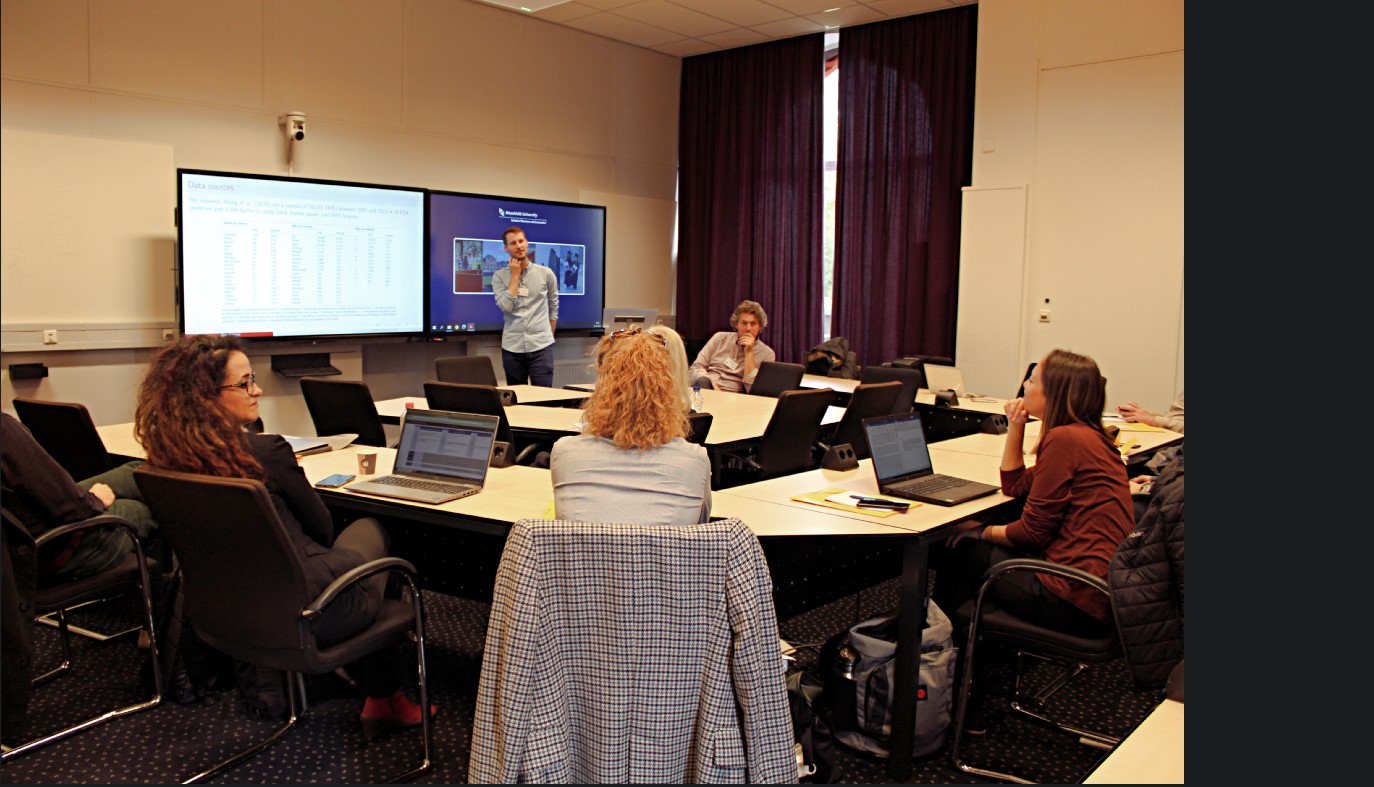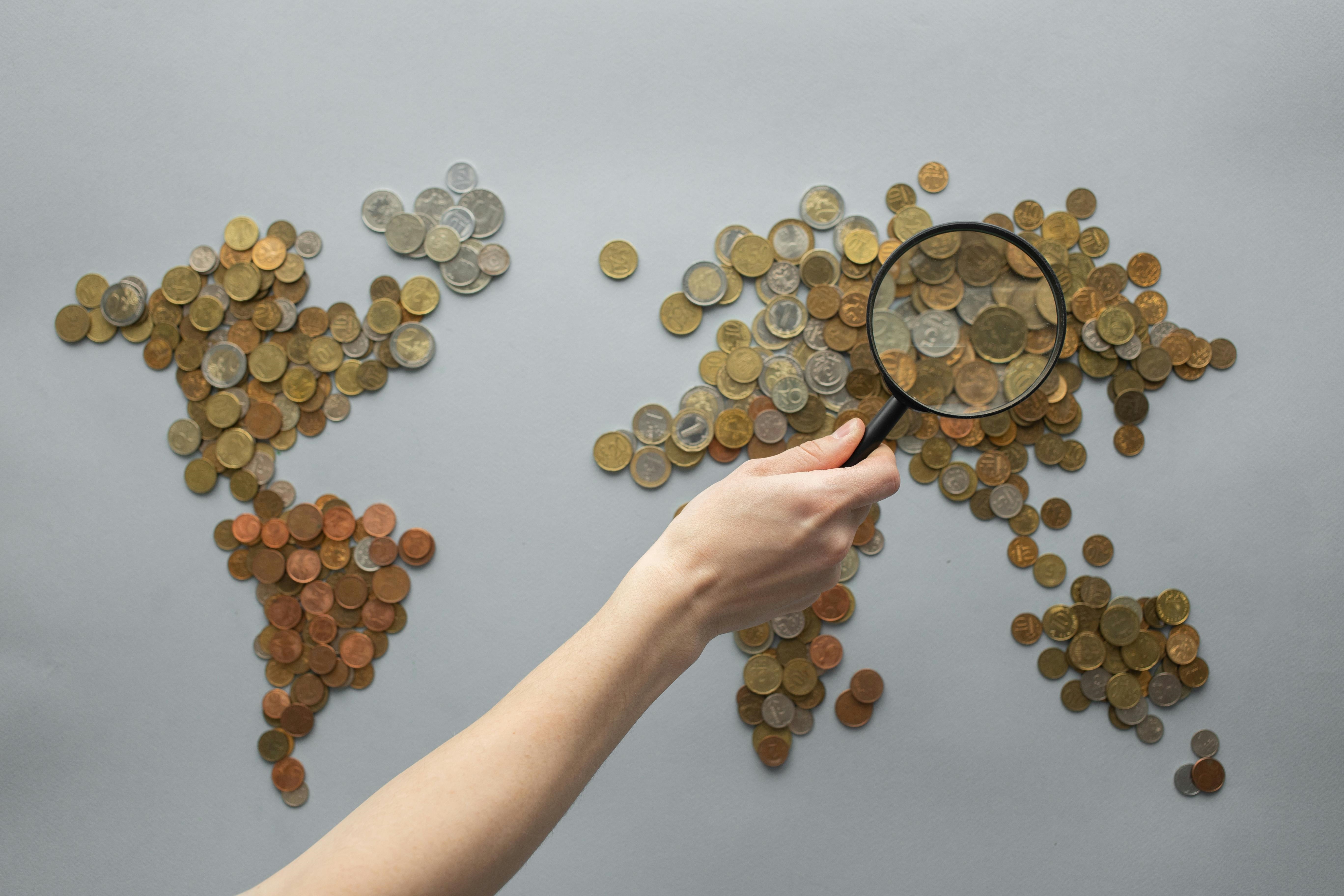The MORSE Week “Conferences of Conferences” 2022
A series of events organized by the Maastricht Observatory on Resilient, Responsible & Sustainable Enterprise and Economy initiative took place during this year's MORSE "Conference of Conferences" week in October 2022.
This week included workshops, student conferences, and a CEO meeting from October 20-26, 2022. In addition, MORSE hosted the Interdisciplinary European Conference on Entrepreneurship Research (IECER) in Maastricht from October 26-28, 2022.
MORSE Week Events – 20th until 26th October
The MORSE week kicked off with a workshop Consortium on EU-Horizon Call Managing High Impact, Low Probability Events, which took place in Maastricht.
During this workshop, Prof. Mark Sanders presented the research findings of previous experts on this topic - "We don't need to try to predict disruptive events, but to create systems that are able to absorb, adapt, and be resilient." Several other presentations took place throughout the workshop, including one on resilience in cities to cope with uncertainty during extreme events. After each of the presentations, participants discussed possible solutions to the issues and how to proceed with the ongoing project. The proposal was submitted tot he EU Horizon program under the title RESilience in Cities to handle Uncertainty in Extreme events (RESCUE) in November.

On October 21, Prof. Mark Sanders organized a student conference Economics of Transition and Resilience in Brussels, Belgium. The conference was a final event with the students of his newly introduced “Economics of Transition and Resilience” course at Maastricht University's School of Business and Economics. Students were welcomed by the Head of Unit and later the Director General of DG ECFIN and presented proposed solutions to speed up Europe’s energy transition while increasing strategic autonomy.
After the weekend, on Monday, October 24, MORSE sponsored a CEO meeting on sustainable investment, organised by Rob Bauer and Top1000Funds.com. The meeting featured lectures and Q&A sessions with practitioners and academics on sustainable finance and pension investments.
This was followed by the Elverding Conference on “The Future of Sustainable Business, Culture and Corporate Regulation” on October 26th. The events were introduced by Prof. Dr. Rob Bauer and Prof. Mieke Olaerts, followed by a lecture on "The Climate of the Future" by Prof. Dr. Heleen de Coninck. After a short break, there was a moderated debate on "The Board of the Future" by Vino Timmerman and Marieke Wyckaert, a keynote speech by Prof. Luigi Zingales on "Shareholder welfare maximization" and another moderated session with contributions of Dominique Dijkhuis, Anne Lafarre and Christoph van der Elst on "The investor of the future". The day was concluded with a panel on "The stakeholder relationships of the future" with a closing by Prof. Bauer and Prof. Olaerts.

Interdisciplinary European Conference on Entrepreneurship Research (IECER)
On October 26-28 MORSE supported the 20th IECER2022 conference that was themed "Entrepreneurship for a Responsible, Resilient and Sustainable Future."
To kick off the IECER event on October 26, a plenary opening and keynote speech were organized, followed by several breakout sessions. Presentations included research topics such as,
- Entrepreneurs, entrepreneurial families, and family businesses,
- Academic entrepreneurship,
- Entrepreneurship and the region,
- Entrepreneurship and resilience, and
- Entrepreneurial well-being and health.
During the breakout sessions, researchers from various universities across Europe gave presentations, after which all participants could engage in discussions and brainstorming.
One of the presentations was about INNORBIT, a program to support local innovation initiatives to promote space entrepreneurship in Eastern Europe by George Malliopoulos. The program aims to develop two support programs: (1) a capacity building program for innovation intermediary organizations to create space initiatives and expand their local ecosystem for space entrepreneurs. (2) Support program for start-ups to successfully commercialize their products and services using space technology. The first IECER day ended with a social gathering where ideas from the day's various breakout sessions. could be further discussed and explored

On the second day of IECER events, October 27, topics discussed included:
- corporate social responsibility and entrepreneurship,
- entrepreneurial and alternative financing,
- integrative entrepreneurship,
- cultural and creative entrepreneurship, and
- wine economy and entrepreneurship.
One of the presentations addressed the motivations of ecopreneurs: a systematic literature review. It was explained that Ecopreneurship seeks to support entrepreneurial activity aimed at preserving the environment. This is of great importance because we need a revolution among entrepreneurs who focus more on sustainable approaches due to the current environmental problems of our planet. Marcelo Gonzalez addressed the research question, "What motivates individuals to become ecopreneurs"?

On the last day of the IECER event, October 28, a session was held for participants to meet the editors of several field journals in Entrepreneurship, followed by a farewell brunch. The MORSE week was closed with a visit to the Viewmaster video art exhibition “No Limits” at the former NATO headquarters in Kanne.

Also read
-
Billions of dollars in foreign aid could be spent more effectively if international poverty statistics weren’t so inaccurate. Says Dr Michail Moatsos, Assistant Professor at Maastricht University School of Business and Economics.
-
DATASET researchers from Maastricht University (BISCI) and Fontys applied the Digital Readiness Scan developed by Logistiek Digitaal to several regional logistics service providers, scientifically validated the underlying methodology, and analyzed the strengths and weaknesses of this tool.
-
Anecdotal evidence imply that what ones sees in a sausage factory cannot be unseen, and such an experience somehow takes away something from the joy that stems out of the carefree consumption of such delicacies. In this blog entry about the international poverty line’s maladies, I don’t want to ask...


